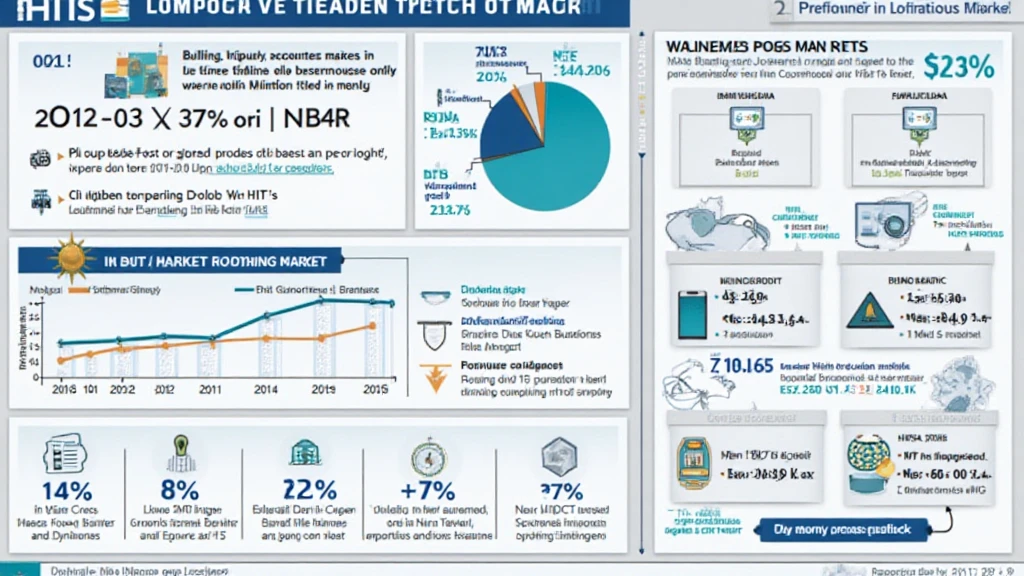Introduction
As of 2024, Vietnam’s economy has seen an incredible transformation with an increasing acceptance of digital currencies. Amidst these changes, Bitcoin remittance fees have become a pivotal topic. Did you know that in 2023, remittance flows to Vietnam reached over $18 billion? This staggering amount emphasizes the relevance of understanding Bitcoin remittance fees in Vietnam. In this comprehensive guide, we will delve into the intricacies of Bitcoin remittance in Vietnam and how fees affect your transactions.
The Rise of Bitcoin in Vietnam
In the past few years, Vietnam has emerged as one of the fastest-growing markets for cryptocurrency. A combination of technological advancements, a high youth population, and increased digital literacy has resulted in a surge of Bitcoin usage. Reports indicate that in 2023, the percentage of Vietnamese internet users engaging in cryptocurrency transactions reached 30%, showcasing the remarkable growth of this sector.
Many Vietnamese are exploring Bitcoin as a means for remittance. Traditional remittance methods can come with substantial fees, prompting users to seek out more efficient alternatives. This is where Bitcoin shines, offering faster and often cheaper solutions.

The Basics of Bitcoin Remittance Fees
Before we break down what influences Bitcoin remittance fees in Vietnam, it’s crucial to understand the basics of Bitcoin as a payment method. When sending Bitcoin, a fee is required to facilitate the transaction on the blockchain. The fee amount can vary based on several factors, including:
- Network congestion: The more transactions being processed on the Bitcoin network, the higher the fees.
- Transaction size: Larger transactions or transactions with more data require higher fees for processing.
- Fee market: Bitcoin fees are determined by supply and demand within the market, changing frequently.
According to recent data, on average, Bitcoin remittance fees can range from $0.50 to $5.00, depending on the factors listed above. This is relatively low compared to traditional banking fees, which can exceed $15 per transaction.
Factors Influencing Bitcoin Remittance Fees in Vietnam
Many local factors contribute to the variance in Bitcoin remittance fees specifically in Vietnam. Here are some key aspects:
1. Regulatory Landscape
Vietnam’s regulatory stance on cryptocurrency continually evolves. At present, the central bank does not recognize Bitcoin as a legal tender, however, it permits digital asset exchanges and transactions. This ambiguity can lead to fluctuations in Bitcoin fees depending on legislative changes, potentially affecting transaction costs.
2. Exchange and Wallet Choice
Choosing the right exchange or wallet platform can dramatically impact the remittance fees incurred. Local exchanges may offer competitive transaction fees compared to international platforms. Some popular Vietnamese platforms include Remitano and Binance Vietnam. Always check the fee schedules of different services to find the most economical option.
3. Economic Factors
Vietnam’s economic trends also play a critical role in Bitcoin remittance fees. For instance, if the Vietnamese Dong is weakening against major currencies, demand for Bitcoin increases, potentially driving up transaction fees. Additionally, local economic activities and remittance volumes can significantly impact how fees are structured.
Transaction Time and Efficiency
For many, speed is of the essence when sending money through Bitcoin remittance. Traditional methods often take several days for funds to clear, while Bitcoin transactions can be completed within an hour, depending on network conditions. Even with transaction fees, the time savings may justify the costs for many users.
Some services offer instant conversion from BTC to VND, allowing remitters to send Bitcoin and the recipient to receive local currency almost immediately, a significant advantage in urgent situations.
Local Trends Influencing Bitcoin Remittance
Vietnamese consumers showcase unique behaviors in utilizing Bitcoin for remittance. The inclination to adopt Bitcoin extends beyond mere remittance; it encompasses investment practices and capital preservation. Nearly 60% of Vietnamese internet users have expressed interest in investing in cryptocurrency as a hedge against inflation.
Moreover, local startups are tapping into this opportunity to innovate Bitcoin payment solutions. Some of these are focusing on minimizing fees, enhancing transaction speed, and creating user-friendly interfaces. Companies like Fiin Credit are integrating cryptocurrency payments in everyday transactions.
Future Perspectives on Bitcoin Remittance in Vietnam
Experts forecast robust growth in Bitcoin remittance activity within Vietnam. By 2025, the market is expected to expand significantly, thanks in part to the technological advancements in blockchain. As noted by Chainalysis in 2025, the overall transaction volume for cryptocurrency might reach unprecedented heights.
Furthermore, local regulations are likely to become more defined, granting greater confidence to users and investors. The segment of the population engaging with Bitcoin remittance could grow to 45% of internet users in Vietnam by 2025.
Conclusion
In summary, understanding Bitcoin remittance fees in Vietnam is essential for anyone looking to leverage cryptocurrency for transfers. The current trends indicate a promising future for Bitcoin within the remittance market, spurred by low fees, faster transactions, and evolving local regulations.
Utilizing Bitcoin not only allows you to circumvent high traditional fees but also presents a chance to explore the exciting world of cryptocurrency. As always, it is wise to stay informed about local regulations and market trends before engaging in cryptocurrency transactions.
For further information and a broad spectrum of resources, be sure to visit mycryptodictionary to enhance your digital asset experience.
About the Author
John T. Nguyen is a prominent financial consultant specializing in cryptocurrency and blockchain technology. He has authored over 20 research papers on digital currencies and has led audits for several well-known projects in the blockchain industry.





